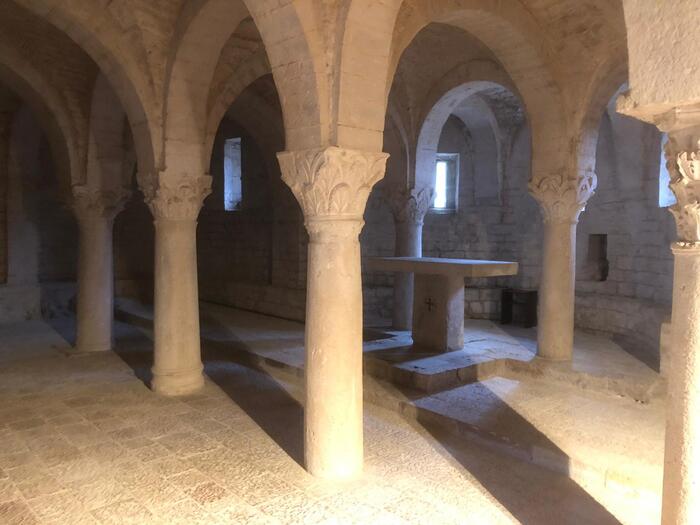A month ago, Alberto San Juan (Madrid, 53 years old) premiered at the Valle-Inclán theater in Madrid his version of the novel
Lectura fácil,
which follows the day-to-day life of four young people with disabilities who share a sheltered apartment, for which Cristina Morales won the National Narrative Award in 2019 and established herself as one of the most powerful, creative, non-conformist and innovative voices in current Spanish literature.
This time the actor has not climbed onto the stage, but has remained out of the spotlight, as an adapter and director of the staging.
For San Juan, putting 400 pages on a stage measuring 14 by 14 meters "has been the most difficult task he has ever done," he admits in an interview in the Valle-Inclán stalls.
More information
The literary provocation of Cristina Morales loses fury in her theatrical version
The premiere in Madrid of the work before going on a tour of Spain in January coincided with the Movistar broadcast of the series
Fácil
, directed by Anna R. Costa, another adaptation of the same novel, which has received the darts from Morales for Reduce your criticism of social services.
Consequently, the second called the first a "Nazi" and the latter responded by reproaching him for the money charged for the rights.
Ask.
Excuse the clumsiness, but what term should I use to refer to Easy Reading
actors
with a disability?
Answer
.
I understand you perfectly.
Before
reading Easy Reading
and making its adaptation, I would have said that the cast is made up of three normal people and four abnormal ones.
Later, when he was a little more educated, he would have said three standard interpreters and four with functional diversity.
And now I tell you that it is made up of seven actors, period.
Q.
Why can a story of four people in a sheltered apartment be of interest to everyone?
R.
The work speaks not only of these people, but of the population as a whole.
The sheltered apartment is a metaphor for a society, ours, where the vast majority of us are disabled by the system when it comes to participating in decision-making that determines our life together.
It is called "normal" for an elite to direct the lives of all for the superior interest of the incapable.
Play on words whose translation is: constant growth of the economic benefits of the largest owners of capital at the cost of the precariousness of the rest.
From left to right, Carlota Gaviño, Anna Marchessi and Pilar Gómez, in the adaptation of 'Lectura fácil' directed by Alberto San Juan.LUZ SORIA
Q.
Can we speak of "normality" in Spain, one of the countries in the world that consumes the most anxiolytics, hypnotics and sedatives?
R.
We live doped to be able to withstand this society.
A psychiatrist friend told me: “I often find a man comes to see me and he tells me that he is depressed and to give him something to relieve himself.
I tell him to tell me about his life and I see that he is an exploited worker.
So his problem is not medical, it is social, it is political.
But I can only offer you pills.
So I feel like I'm doping people so they can stay alienated.
Of course, without bursting ”.
I believe that the system itself is a disease that makes us all suffer to a greater or lesser extent, even though we are in more or less privileged places within this society.
Q.
_
What has been the most difficult thing about putting 400 pages on stage?
R.
_
It has been the most difficult writing job I have ever faced.
First, I'm not a writer, I'm an actor who sometimes writes and even directs, but basically I'm an actor.
I don't have that much of a trade, but I have written six or seven original works.
However, this adaptation has cost me more than any other before.
And it has been difficult for me because it is a novel of more than 400 pages of which I liked all of them.
The hard part was selecting and then cutting, cutting and cutting.
Q.
Do you have a better time with this type of theater?
R.
As a citizen and as a person who is dedicated to creative activities, I care about what happens and I am interested in life.
In this sense, the problems of others concern me too, but I don't like the labels of a committed or conscientious actor.
I am not an activist.
I'm an actor and that's it.
Q.
But there are themes that appeal to you more.
R.
In theater, yes because I have always participated in projects that I have generated or in which I have collaborated.
First with Animalario for 15 years, then with the Teatro del Barrio, the room we founded in the Lavapiés neighborhood of Madrid, and now with the adaptation of
Easy Reading
.
Q.
_
How do you see the role of culture in current political life?
I am thinking of the recent controversy over the censorship of the play by the playwright Paco Bezerra on Teresa de Jesús by the Community of Madrid.
R.
_
Culture and politics are the same: learning to live together.
Another thing is what type of coexistence is sought.
Most of the political and cultural agents (Ibex 35, large communication groups or neoliberal parties, including the PSOE) seek to maintain the current system of domination in favor of their privileges.
But we can learn to coexist democratically, that is to say: putting life and care at the center.
And this great transformation is only possible through culture and politics.
Q.
_
Is there interference from the ultra-right in cultural life?
R.
_
The extreme right is the cry of the macho in the face of the inevitable collapse of the heteropatriarchy.
The destruction caused by love drags him down.
There Ayuso or Abascal appear, screaming.
San Juan, in the stalls of Valle-Inclán.JUAN BARBOSA
Q.
_
Do you believe in that of the battle of ideas?
R.
_
I refuse to consider life in warlike terms.
I will not participate in any battle.
I am a deserter by conviction.
I will try to participate in collective labors of love towards the living.
Basically, I will try to take care of myself by taking care.
Q.
_
Apart from theater, you have a long history on the big screen.
What is the state of health of Spanish cinema?
R.
Creatively, wonderful.
The audiovisual has made a qualitative leap in recent years in Spain.
And this is directly related to the increase in female filmmakers.
In turn, that has to do with grants prioritizing projects directed and written by women.
Q.
Did your time as a journalist leave you anything that has served you later?
A.
I love journalism.
And I miss it.
I was a very clumsy reporter, but I learned very useful things.
Q.
When you started writing, were you afraid of a fight like the one Cristina Morales has had with the director of the television series, Anna R. Costa?
R.
My first proposal was that Cristina make the adaptation, but in the end I did it.
But I know that she has seen it several times and I think she liked it.
There is a good relationship.
Q.
And what do you think of the discussion they have had?
A.
It seems to me that Anna, once she buys the rights, she can do whatever she wants.
And she has done the series that she has wanted.
I also understand that Cristina, as an author, can give her opinion whatever she wants.
But this is common to happen.
It became a classic to listen to Juan Marsé give birth to the multiple versions that were made of his novels in cinema.
Nothing happens.
Once an author sells the rights for another to make an adaptation to whatever format, he accepts that he may not like it.
I don't see a problem with Anna doing the series she wants and Cristina saying what she wants about her.
Subscribe to continue reading
Read without limits
Keep reading
I'm already a subscriber

/cloudfront-eu-central-1.images.arcpublishing.com/prisa/AHA3OJJLXZCP3EYXGOON5A3YMM.jpg)









/cloudfront-eu-central-1.images.arcpublishing.com/prisa/S7ERVSCT4FUVX6R7TUVBDNTH5Y.jpg)



